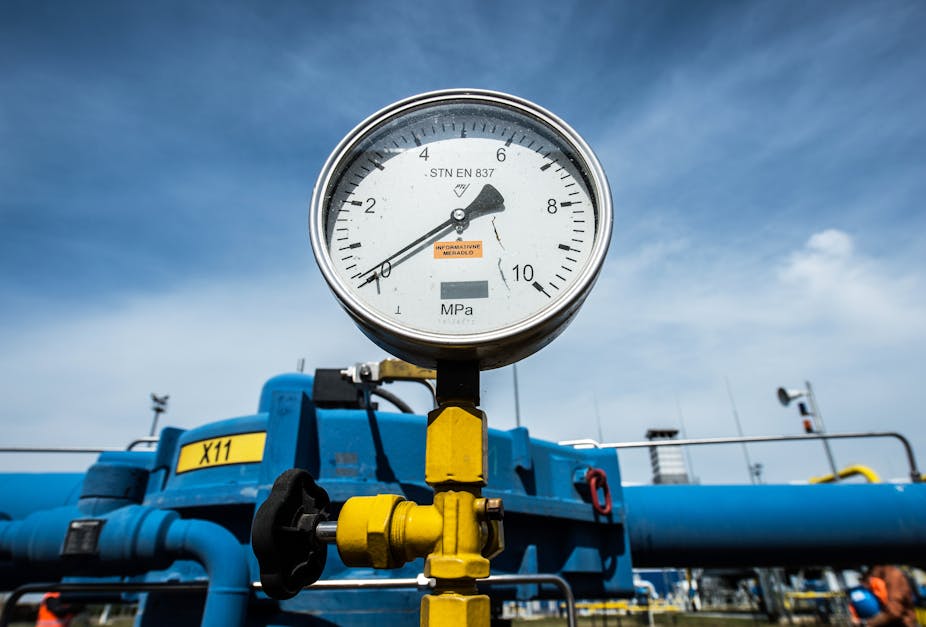Ten years ago, it was received wisdom in western academic, business and policy circles that Ukraine was an archetypal “captured state” – a state owned and run almost entirely by a small, insecure and fabulously rich elite.
Of course, despite the cloak of academic respectability, the complaint from the West was not so much that the Ukrainian state was captured, but rather that it had been captured by the wrong people.
Indeed, Ukraine spent the early 21st century under the sway of a political class that was deeply entangled with Ukrainian and Russian capital. That elite clearly did not fully understand the challenges and demands of retaining power in a complex and increasingly unequal and politically mobilised society.
The resultant removal of Viktor Yanukovich as president earlier this year at the hands of perhaps half the Ukrainian people, was encouraged by the USA and its allies, who were keen to thwart Russia’s ambition of establishing a rival sphere of influence in eastern Europe. That meant breaking the pro-Russian elite’s grip on power.
Ironically, they have been helped by the Russian-supported insurgency in eastern Ukraine, which is fundamentally populist and anti-oligarchic, and which has further dispossessed the pro-Russian capitalist class of many of their industrial and commercial assets.
The problem is that the new Kiev elite may not have the power to change things decisively before the Ukrainian economy collapses.
Taking the reins
On the surface, Kiev’s western-orientated investment and finance elite has indeed captured the post-Yanukovich state.
Many of Ukraine’s longstanding private-sector financial services professionals have now taken up key roles in the government and in strategic state-owned companies, especially the monopoly gas producer and supplier Naftohaz and the huge defence industry producer, Ukroboronprom.
This new cohort wants to privatise state assets and attract western capital to modernise the country’s economy and society. But this new generation, armed with a new mentality and a new vision for the country, finds itself hemmed in on all sides.
The technocrats may be in office, but it’s not clear if they’re actually in control. The new regime’s plans for the energy, financial and defence sectors are guaranteed to dispossess the old political/economic elites of much of their wealth and influence, but that process is already well underway thanks to the country’s tanking economy.
Ukraine’s currency, the Hryvnia, has lost 50% of its value since the start of 2014, and that has decimated the capitalist class’s wealth.
Meanwhile, the armed conflict and loss of territory in the country’s industrial and commercial heartland in the Donbas, which seems to have been all but surrendered by Kiev, has also destroyed or isolated much of the infrastructure and resources on which the country’s economy depends.
If the new generation of technocrats is in power – as opposed to merely being in office – we will notice it first in the energy sector.
Hot air
At the 9th Ukrainian Investment Summit in London, Dmytro Shymkiv, a former high-tech investment manager and now deputy chief of staff of the presidential administration and chair of the National Reform Council, argued strongly that the state oil and gas company, Naftohaz, needs to be privatised. “Gas,” he said, “needs to become a commodity and priced like a commodity.”
But Naftohaz’s chairman, Andriy Kobolyev, who also addressed the summit, put more faith in EU regulators’ ability to create a fully-functioning European gas market with Ukraine included.
Kobolyev maintained that there is no such thing as “Russian gas”, just gas molecules, which no longer count as Russian once they cross the Russian border. Simon Pirani of the Oxford Institute of Energy Studies countered that if the gas molecules originate in Russia, then it is Russian gas, wherever Ukraine gets it from.
This might sound like just an arcane debate about what counts as “Russian gas”, but it could be a decisive conversation. Gas dependence plays a major political role not only in Ukraine, but also in neighbouring EU member states.
In the short term, Ukraine’s new authorities believe it can rely on purchasing “Russian gas” from its Western neighbours, a supply method called “reverse flow”. But if this gas carousel is allowed to keep operating indefinitely, it may mean Ukraine’s domestic gas market goes unreformed – allowing Russia to maintain its political influence in the country and in the EU alike.
While Russia has just resumed its supply of gas to Ukraine after a six-month dispute over debts and tariffs, the country’s dependence on imported Russian gas will simply have to be reduced for the sake of energy security.
At the same time, it looks as if Ukraine is in danger of simply substituting dependence on Russian gas for dependence on western credit. Indeed, Kiev’s economic situation is now so precarious that one participant at the summit went so far as to suggest that Ukraine has effectively outsourced its economic policy to the West.
Teetering
The country’s public debt is expected to exceed 60% of GDP in 2014 and 70% in 2015, which would entitle Russia to demand early payment of a $3 billion bond provided in the last months of the Yanukovich government.
Since his toppling, the country has increased taxes, cut expenditure and introduced capital controls – and yet its foreign exchange reserves are still depleting by $2-3 billion per month and now stand at around $9 billion.
That means that without another bail-out, the country will run out of money in perhaps three months. It has been estimated that despite the $27 billion IMF-led bail-out agreed after the toppling of Yanukovich, the country needs a further $15 billion of external support to service its financial needs.
A hefty price to pay, but a small one compared to the potential consequences of inaction. Should western institutions fail to stop Ukraine from going bankrupt, the Ukrainian people could return to the streets of this diminished country once again. And the outcome of yet another social crisis could be even more worrisome than last time around.

